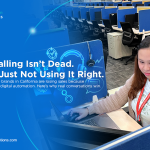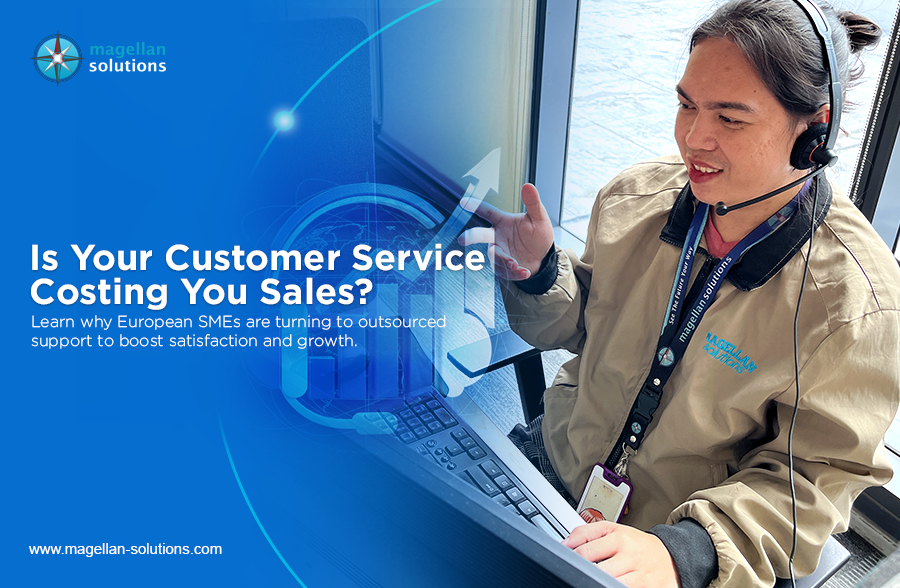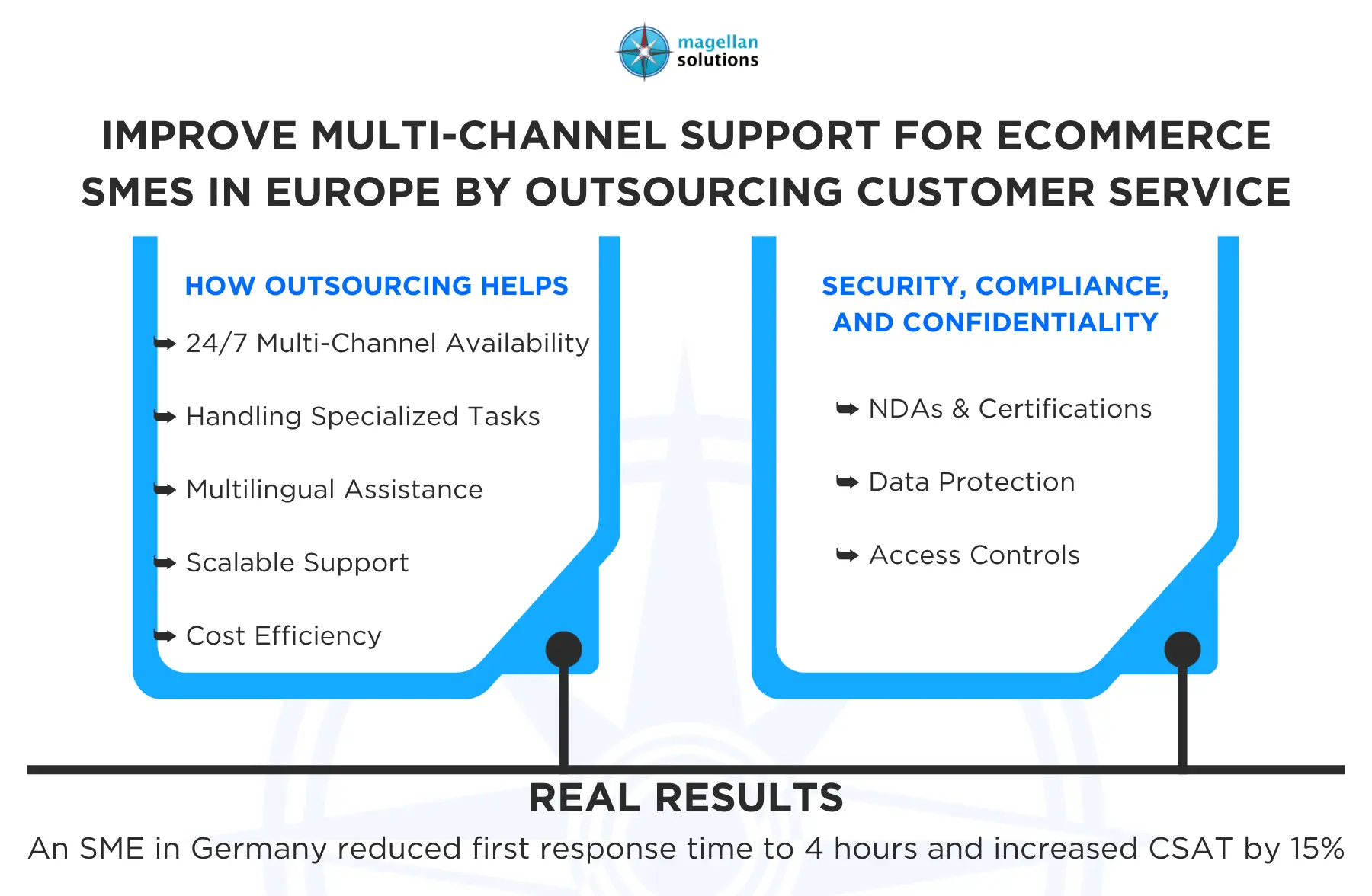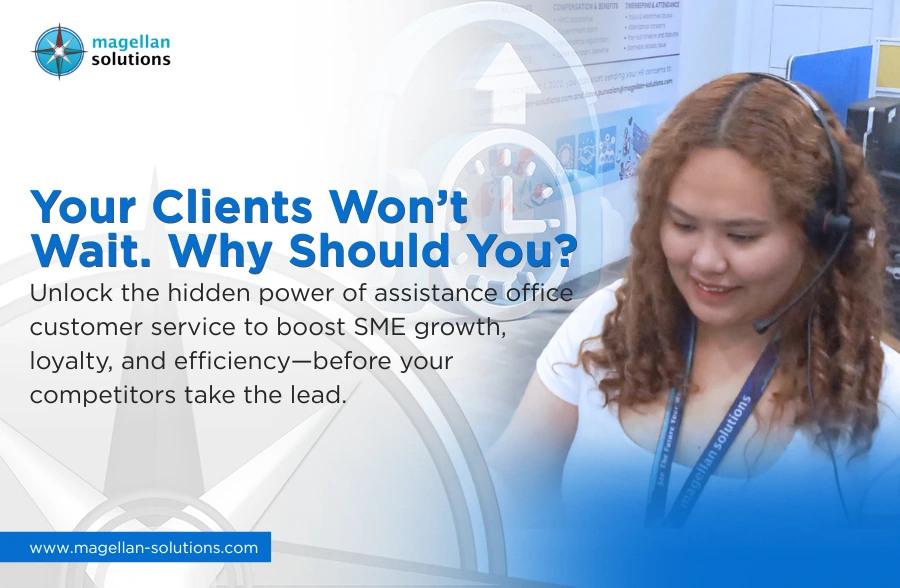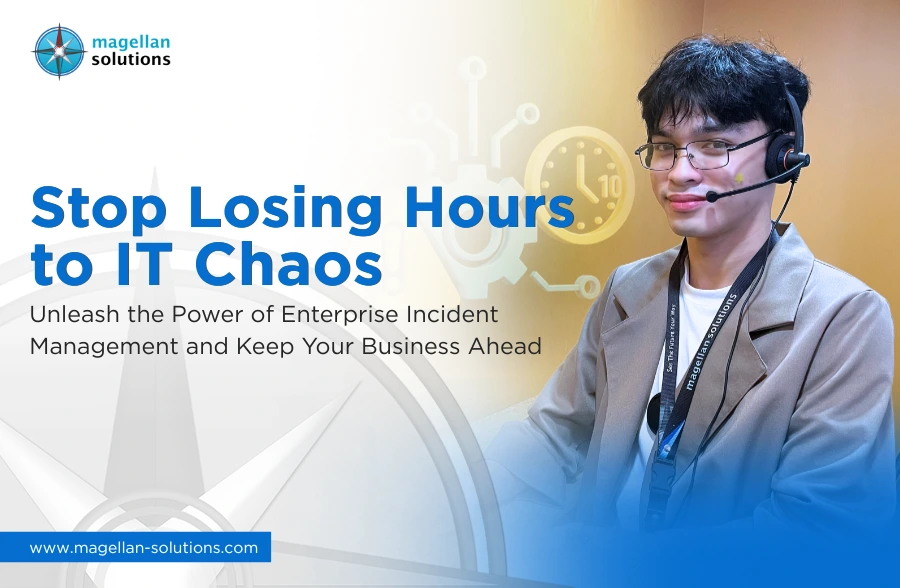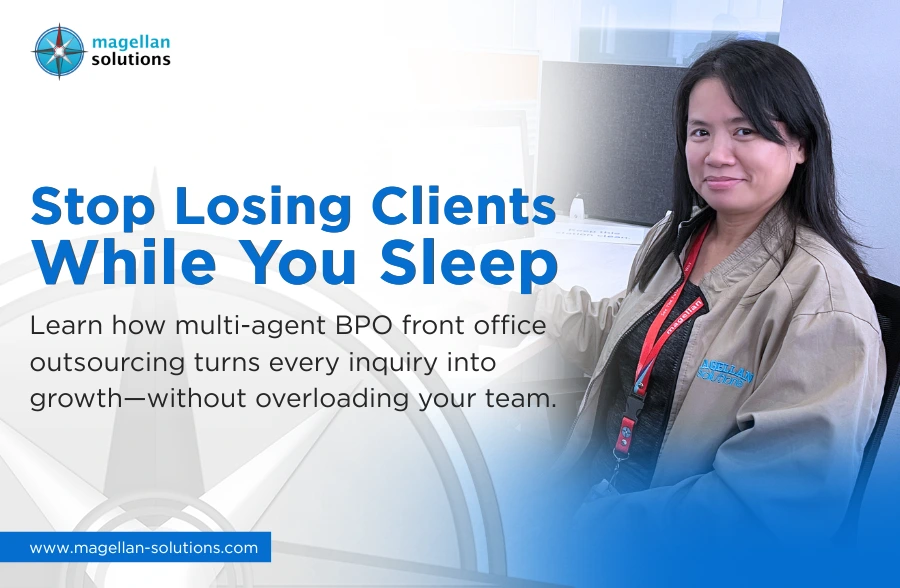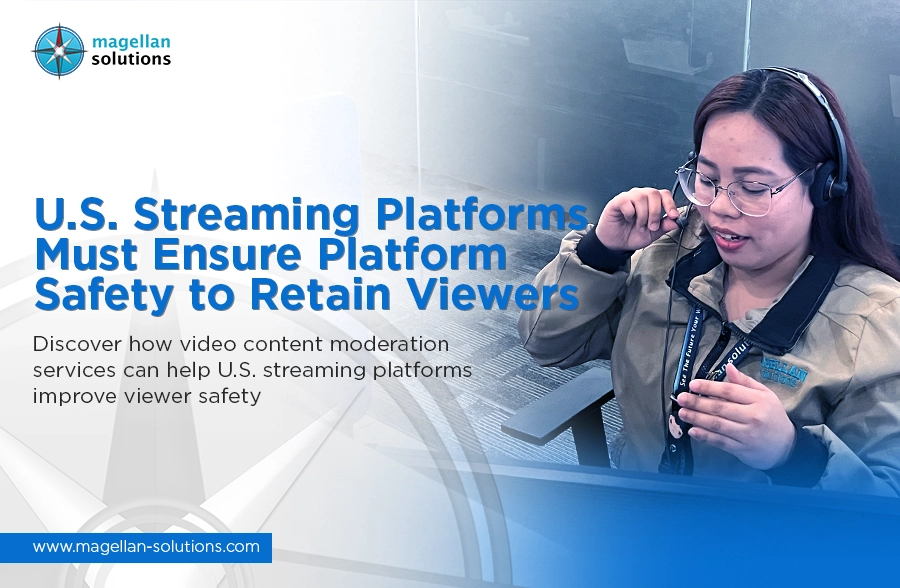Looking for an accurate quote for your outsourcing needs?
Schedule a FREE call with our outsourcing expert now and get a precise quotation that meets your requirements. Don't wait - get started today!
European e‑commerce SMEs face increasing pressure to provide fast, reliable, and consistent support across multiple channels. With online shopping booming, customer expectations are higher than ever. A single delayed response can lead to abandoned carts or negative reviews.
To tackle these challenges, many SMEs are choosing to outsource ecommerce customer support. Through customer service outsourcing for ecommerce, businesses can access specialized teams, multilingual capabilities, and flexible support models without the expense and complexity of building a full in‑house operation.
Outsourcing is no longer just an option—it’s a strategic solution for delivering superior multi‑channel customer experiences across Europe.
How customer service outsourcing for ecommerce Helps Ecommerce SMEs in Europe
Here are the main ways outsourcing can support European e‑commerce businesses:
-
24/7 Multi‑Channel Availability
Outsourced teams provide round-the-clock support across email, live chat, phone, and social media. This ensures customers receive prompt responses anytime, boosting satisfaction and reducing missed sales opportunities. -
Cost Efficiency
Hiring, training, and maintaining an in-house team is expensive. Outsourcing offers access to skilled professionals at a fraction of the cost. SMEs can scale support without incurring large fixed overheads. -
Scalable Support
Outsourced teams can adjust staffing levels to match demand spikes, such as during promotions or seasonal peaks. This ensures consistent service without overstaffing during quieter periods. -
Multilingual Assistance
Europe’s diverse languages and cultures require localized customer support. Outsourcing providers offer agents fluent in multiple languages, allowing SMEs to serve customers in Germany, France, Spain, the UK, and beyond. -
Handling Specialized Tasks
Outsourced teams can manage:
– Customer email and live-chat inquiries
– Phone support for post-sale questions
– Order tracking and returns
– Social media and marketplace messaging
– Ticket escalation and follow-up
This frees internal teams to focus on growth and product development.
Industries That Benefit Most
Certain e‑commerce niches gain extra value from outsourcing:
-
Fashion and Apparel
High volumes of size-related inquiries and returns are handled efficiently by a dedicated team. -
Consumer Electronics
Outsourced agents manage warranty questions and technical support, letting SMEs focus on product innovation. -
Health & Beauty
Post-purchase questions, subscriptions, and social media engagement are managed seamlessly, maintaining brand consistency. -
Marketplace Sellers
Unified multi-channel support helps SMEs manage multiple platforms efficiently without internal silos.
Security, Compliance, and Confidentiality
Outsourcing must be secure, especially when handling customer data:
-
Data Protection
Compliance with GDPR ensures secure handling of sensitive information. -
NDAs and Staff Vetting
Agents sign non-disclosure agreements and undergo thorough background checks. -
Certifications
ISO certifications, such as ISO 27001, demonstrate a provider’s commitment to information security. -
Access Controls
Role-based access, secure remote connections, and continuous monitoring maintain data integrity.
These protocols give SMEs confidence that customer information is safe and regulatory standards are met.
Real Results: Example Scenario
Before Outsourcing:
A German SME selling electronics struggled with an in-house support team of three. Average first-response time was 24 hours, peak promotions caused missed chats, and operational costs were high.
After Outsourcing:
By engaging a multi-channel outsourcing provider:
-
First-response time dropped to 4 hours
-
Support costs decreased by 30%
-
Customer satisfaction (CSAT) rose 15% in three months
-
Internal staff could focus on launching new products and expanding to France
Outsourcing clearly improved efficiency, customer experience, and business growth.
In-House vs. Outsourced Support
| Factor | In-House | Outsourced |
|---|---|---|
| Cost | High fixed overhead | Flexible, pay-per-seat |
| Training Time | Long ramp-up | Trained agents ready |
| Availability | Limited hours | 24/7/365 coverage |
| Scalability | Difficult | Easy scaling during peaks |
| Technology | Internal investment needed | Provider supplies platform & analytics |
| Language Reach | Multiple hires needed | Multi-lingual agents included |
Why Choose Outsource Ecommerce Customer Support
Proven Multi-Channel Expertise
Agents are experienced across phone, email, live chat, and social media, providing consistent customer experiences.
Multilingual Coverage
Fluent in local languages and cultural context, essential for European markets.
Flexible Pricing Models
Align costs to support volume and seasonal demand without heavy overhead.
Data Security & Compliance
ISO-certified providers follow strict protocols for GDPR and sensitive data management.
Performance Metrics
Providers track KPIs like response times, resolution rates, CSAT, and ticket volume for continuous improvement.
Conclusion
European e-commerce SMEs must meet rising customer expectations while controlling costs. Outsource ecommerce customer support to scale efficiently, serve multiple channels and languages, and enhance the post-sale experience.
Interested in customer service outsourcing for ecommerce?
Magellan Solutions provides multi-channel, multilingual customer service for European e-commerce brands. Explore their expertise and book a free consultation today.
www.magellan-solutions.com



